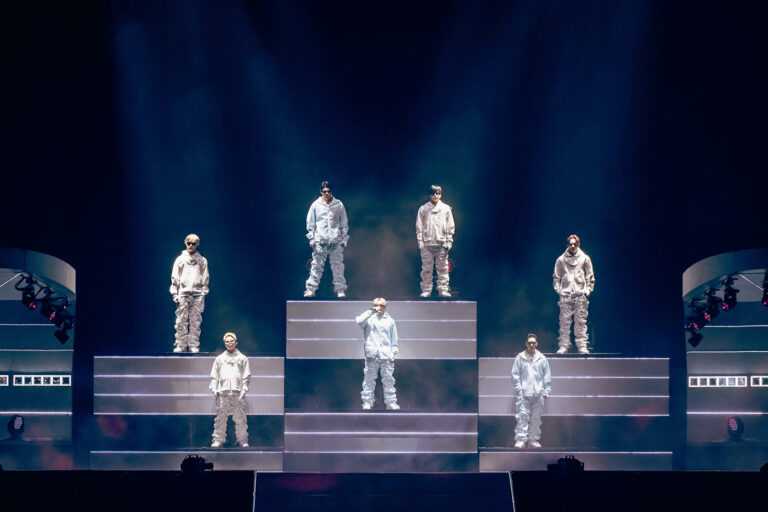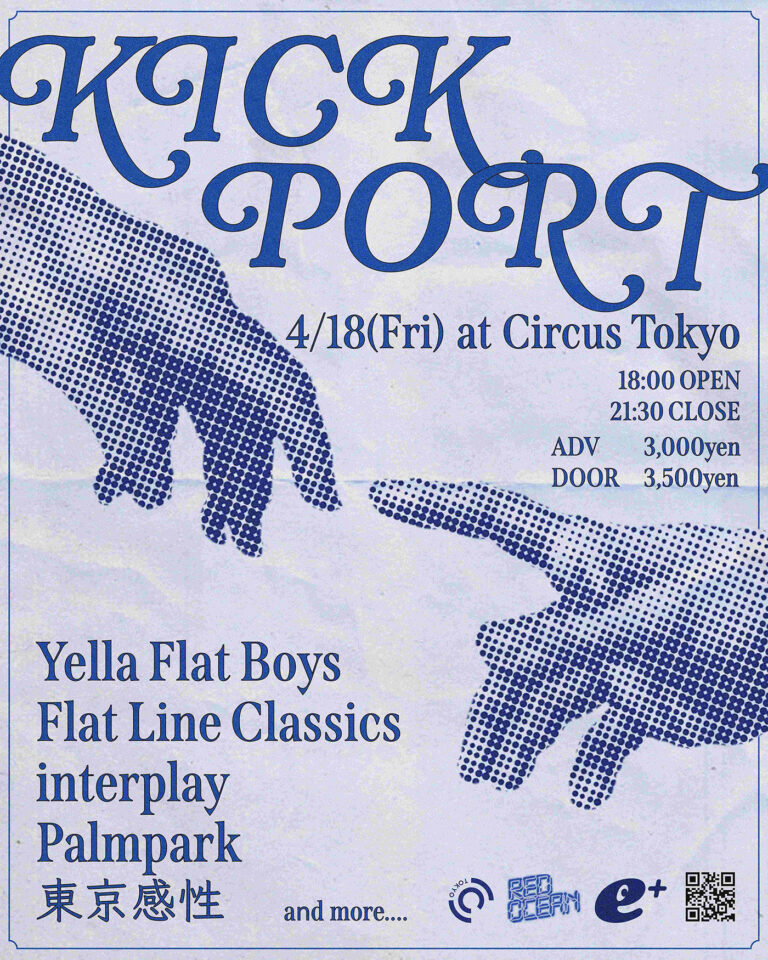■ “It’s such a wonderful thing to have friends you can build trust with (tears)” (LiSA) “Ah, that’s what really hits you” (Horie) “It feels like it’s been a while since I’ve seen that. I was thinking that I haven’t cried recently” (Tabuchi)
The first volume of the Blu-ray and DVD for the third season of the TV anime “The Irregular at Magic High School,” for which LiSA performs the opening theme song “Shouted Serenade,” as well as the original soundtrack, will be released on July 31st.
To commemorate the release, a special interview with LiSA, Tabuchi Tomoya, and Horie Shota, who produced the opening theme song “Shouted Serenade,” has been released.
Be sure to enjoy this interview along with the TV anime Blu-ray & DVD and soundtrack, as it will deepen your understanding of the work and its music.
[LiSA x Tomoya Tabuchi x Shota Horie “Shouted Serenade” Special Interview]
— “Shouted Serenade” (Lyrics: LiSA, Tabuchi Tomoya, Composition: Tabuchi Tomoya, Arrangement: Horie Shota) is the opening theme song for the third season of the TV anime “The Irregular at Magic High School.” How did the production start?
LiSA:The anime “The Irregular at Magic High School” is celebrating its 10th anniversary and a new series is starting, so I was first approached to “please write a theme song again.” “Rising Hope” (TV anime “The Irregular at Magic High School” opening theme / Lyrics: LiSA, Tomoya Tabuchi Composition: Tomoya Tabuchi Arrangement: Shota Horie / 2014) is an important song to me, and it has grown a lot over the past 10 years. I wanted to get the two people who wrote that song together and experience the feeling I had back then of “Wow! Isn’t this cool?” again, so I asked them to do it.–What kind of song does “Rising Hope” mean to you?
LiSA:Isn’t this the first anime tie-up song that my senior (Tabuchi Tomoya) has written for me?
Tomoya Tabuchi:Oh, I see.
Shota Horie:That’s right.
LiSA:Starting with “Mousou Controller” (included in the first mini-album “Letters to U” / 2011), you have written various songs for me. Your first anime song was “Rising Hope”, so what did you think of it as a senior?
Tabuchi:I think it was more like I was making a song for LiSA rather than making an anime song, so I don’t think it was any different from before.
LiSA:The songs that my seniors had entrusted me with up until then seemed to have more of a pop sound, but “Rising Hope” is in a minor key, isn’t it? You didn’t write many songs in minor keys, did you?
Tabuchi:Because I’m not good at it.
Horie:That’s not true, is it? (laughs)
Tabuchi:The first draft of “Rising Hope” also had a pop chorus.
LiSA:Is that right?
Tabuchi:Yes. My producer at the time, Shinji Yamauchi, told me to change the chorus to a minor key. At that time, Sho Watanabe and Kayoko Kusano were among the writers who worked on LiSA’s songs, and I was in the mindset of “They’ll write cool songs, so I don’t need to do it.” So (when I was making “Rising Hope”), I wanted to make it a pop song, but when I made the chorus minor, that’s how it ended up that way.
LiSA:That’s right. I first asked Arata to arrange “DOCTOR,” which Kayoko had entrusted to me. “DOCTOR” is a song from the album I released before (LANDSPACE/2013), and it was a song that paved the way for me to bring out my feminine side, but when Arata arranged it, I thought, “Isn’t this amazing?”
Horie:I’m happy. For me, (“Rising Hope”) was the first time I’d ever met this combination. At the time, I was a newcomer, or rather, I’d only just started as a commercial composer, and it hadn’t been that long. I think “Rising Hope” is the song that determined the direction of my life as a composer, including my arrangements and compositions, and it was also the first song that had my name on a commercial TV broadcast. It was the first song that I could say I was “doing an anime song,” and thanks to that, I was able to start my life as a composer anew. After that, I was sometimes asked to “make a song like ‘Rising Hope’.” I was thinking, “I was just arranging it” (laughs).–What kind of song is “Rising Hope” to you, LiSA?
LiSA:It was the first time I put my own feelings into an anime song. I told my seniors about my feelings and incorporated them into the song, so it feels very real to me, and it’s also very close to the anime. Because it was my first time having that kind of experience, I have a lot of affection and emotion, and it’s become too important when I sing it at a live performance. I also feel like I’m taking on a lot of responsibility for the song.
–I think this is a very important song for LiSA’s career. “Shouted Serenade” was produced 10 years after “Rising Hope”, but what kind of image did you have in mind when you wrote the lyrics and composed the song?
Tabuchi:I felt a clear will from the anime production side to “want the next one after ‘Rising Hope'”, so I went towards that. It’s a bit confusing when I talk about my mindset, but everyone often says things like “Let’s surpass (the previous work)”, but I’m not like that. I start from the point of “I can’t surpass it”, so I don’t feel much pressure. But I also feel like “I can probably do it”. I think it’s fine to rehash the idea itself, and it’s fine to start with “I can’t surpass it”, but as I’m making it, I come up with a kind of guts that I can’t throw away. From there, I gradually refine the details. I have a theory that “if you take the time, you can definitely make a good song”, and all that’s left is to listen to it 100 or 200 times and refine it. I requested a time when I could make that much production time, and I was given an environment where I could make it without more pressure, so I thought “it was fun” or “I can do it”.
LiSA:During your first meeting, you had a conversation with the director asking, “What is ‘Rising Hope’?”
Tabuchi:Yeah.
LiSA:Senpai talked about “composing” and Shota talked about the arrangement. I thought that the feelings I put into “Rising Hope” and the story of the song were the most important thing. After that, I received a demo with Senpai’s temporary vocals. That was also very good. Senpai has been writing my songs for a long time, I trust him, and his feelings about “Shouted Serenade” were not different at all. So it was fine as it was, but as I was thinking about it, I thought, “I won’t be satisfied unless I put in my current feelings.”
Tabuchi:Yes. It was the same with “Rising Hope,” but it was also about the anime, and it was a projection of her life for the past few years. The lyrics were in that direction, but I think they were closer to a written piece. Especially the B-melody.
LiSA:It’s become a rap (laughs). I asked my senior to help me with the sound.
Tabuchi:That’s right. What was written there was really good. LiSA as an artist is now more recognized than ever before, and it includes things like “I went to these places,” “I had these experiences,” her feelings for her fans, and her thoughts about being LiSA. Personally, I thought “I’d like to include this feeling,” and there were parts where she picked up on phrases from the temporary lyrics, but I hoped that by writing about my life one line earlier, the meaning of the temporary lyrics would sound different. I’m good at making those kinds of adjustments.
LiSA:That’s right.
Tabuchi:Of course, I had read the original novel of “The Irregular at Magic High School”, and I was aware of the anime to some extent even when I was writing the tentative lyrics. I combined LiSA’s life and her work, and arranged it with the feeling that “this is the phrase that should be left behind.” I think that by bridging all of that, the lyrics became a story that is LiSA’s story, the story of “The Irregular at Magic High School”, and the future of “Rising Hope”. Looking back on it like this, I feel that it was a very beautiful production.
LiSA:You haven’t even had a conversation during that time, right?
Tabuchi:No, I haven’t.
LiSA:We just exchanged files. We didn’t call each other and say, “I want to do this here.” But isn’t that always the case?
Tabuchi: That’s right. When I read the text sent by LiSA, I could clearly see that she was thinking about this. When I started writing, I put all my own romantic feelings into it, so I was praying that this romantic feeling would come through. Arata-kun was talking about retakes earlier, but I think this song didn’t get checked that much and went smoothly.–What about the arrangement?
Horie:The production was progressing with a full understanding of the exchanges that you just talked about. I was just standing in the middle of their exchange and saying “That’s good,” but it was directly connected to the arrangement. It was like, “What do you think?” as we were making it. This goes beyond the scope of arranging, but I changed the melody part at the beginning. I brought it from a different part and suggested, “Wouldn’t it be better to put this at the beginning?” and we had a discussion from there. Basically, everyone said, “That’s good.”
Tabuchi:It’s a mutual compliment (laughs).
Horie:Anyway, we shared everything from 1 to 10, and the production proceeded with everyone fully understanding it. Rather than finishing everything at once and sending it off, we would start by asking “Is this different from what everyone thought?” when it was done to a certain extent. If it seemed okay, we’d say “Maybe we should do it a little more freely.” Although most of the actual work was done by one person, it really felt like we were all doing it together.
Tabuchi:It’s really fun when he confronts me with the demo I made, saying, “Isn’t this better?” That always happens when I work with Shota, so it’s exciting.
Horie:good.
Tabuchi:It was a different song, but he said, “I want to change the whole outro, what do you think?” It’s like he’s able to reach that spot, and thanks to Arata’s arrangement, it seems like I’m doing something even more amazing (laughs). That’s true for all the songs that I composed and Arata arranged. It’s really helpful.
Horie:I’m happy. Tabuchi-san really listens to what I have to say, and of course I have a sense of trust in him, but as an arranger, I always feel like, “Is this okay?”, so it’s reassuring to hear him say that.
Tabuchi:I’m counting on you (laughs).
LiSA:That’s because you two have built up trust that each other understands you, right?
Tabuchi:Yes. I’m really grateful.
LiSA:I can’t give logical explanations, so I can only talk about my emotions, like “This part should be a bit brighter” or “This part should be darker” (laughs). It’s the same when you write songs with Shota, right?
Horie:It feels like I’m interpreting (laughs). I materialize what LiSA is saying with sound and say, “This is what you’re saying, right?” There was a lot of that with “Shouted Serenade.” In some cases, I’d say, “That’s not in the scope of the arrangement, maybe it would be better if you did it with the melody.” That’s one of the strengths of this team, and I also like “translation.” I like playing instruments, and I really like getting images from other people and using them to convert them into sound. The two of them clearly know what they should and can’t do, so it’s easy to work with them in that sense. It’s also nice when they say, “Yes, that’s it!” or “It’s better than I imagined” to what I’ve created.
Tabuchi:That’s the best part of creating something with other people, isn’t it? Being able to say things like “That’s great” and “Thank you” to each other.
Horie:It’s such a fun moment when you see the person in front of you happy.
LiSA:There aren’t many opportunities to meet people like that, right? I think my first experience with that was during “Rising Hope.” Of course, things weren’t as smooth as they are now (laughs).
–I heard that Horie was present during the vocal recording.
LiSA:Yes. My senior told me to sing with anger. So I sang with full power.
Horie:I was so worried (laughs).
Tabuchi:It’s amazing that he can sing that well.
LiSA:(The recording took place during tour, so it felt like I was singing.
Horie:Ryo Eguchi is always there for the vocal recording, but LiSA herself creates a blueprint in advance. Some artists talk on the day of recording and decide on the nuances, or proceed by saying, “Let’s try singing this part like this,” but LiSA prepares a way of singing that she thinks is “the best I can think of.” It’s perfect, so all I have to do is sing it and let me know if there’s anything else. It was exactly like that with “Shouted Serenade,” and all I had to do was record LiSA’s “I’m going with this” song without any loss.
Tabuchi:In terms of the vocal blueprint, how did you prepare it specifically? When I listened to the songs, there were a few times when I thought, “Is this how you sing these lyrics?”
LiSA:I was especially conscious of the rap in the second verse. It’s about the lyrics, but the lyrics I wrote initially were still a bit dragging, and had some sad phrases. Then my senior came back and said, “I’m a bit wimpy, so I tried to make the lyrics angry.” Do you remember?
Tabuchi:remember.
LiSA:When I read the lyrics back, I thought, “This is definitely a better way to reach the final goal.” I was guided by that, and I thought that this was the part that would let out the most energy.
Tabuchi:I see. I’ve learned something.
LiSA:(Laughs) I like to write very clear “maps” on the music score.
Horie: It’s like being in the passenger seat of a rally car. There’s someone who gives instructions like “300 meters ahead, turn right” while looking at a notebook with the blueprint of the race, but LiSA plays both roles by herself. Like taking a breath here, expressing a sense of speed here… Especially “Shouted Serenade” is something you can’t sing without doing that.
LiSA:That’s true for all of your songs (laughs). If you just go on stage and sing at full power from the beginning, you probably won’t be able to sing the first verse. If you don’t write out the blueprint for the song before you start, you won’t be able to sing it in the first place and you won’t be able to fully express the song’s potential. First, you have to lay out the path properly and practice it over and over again. Recording is about making adjustments like “I fell here this time” or “I can’t make it to the end if I keep going like this” to create the final version. But you have to practice again when you’re performing live.
Tabuchi:That’s right. You sing the whole song.–This has come up in our discussion so far, but let’s ask again. What is the best part about making music with the three of you?
Horie:Can I start with you? It’s the same with musicality and skills, but there aren’t many places where you can say “Isn’t this really cool?” or “I like it” as a matter of course when you’re making something. All three of us are frank, so if we think something is good, we say “It’s really good”, but first of all, that space is very comfortable. For example, if the producer has the decision-making power, even if I think something is good, I wonder “Am I allowed to say ‘That’s good’?” This team can move forward with the same enthusiasm while checking each other’s motivation. That’s why I feel a sense of security, and I think we can go further and say, “Let’s experiment more” or “Let’s make this kind of proposal”.
Tabuchi:There are many different ways of looking at this, but first of all, I feel that it’s very similar to what Arata said. The reason why I’m happy about it is because it’s the reason I do music. I don’t think that making music is the only thing in my life, and I don’t live with the thought that I will devote everything to music or bury my bones here. That’s why I can continue to do music with my friends, to make them happy and to be recognized by them. I’m very happy to have such a place, and to be able to take the mound at a time like this. It’s also good to be able to check “Is my sensibility stale?” There. It’s a great honor to be able to produce while feeling the pressure of “Can I make music without these people disliking me?” As you get older and get used to it, or get a little fame, you can slack off as much as you want, and no one will deny it. You have to realize it yourself, but you probably won’t realize that you’re becoming lame. This team is a place where you can stand up straight and ask yourself, “Am I still doing this without these people disliking me?”, and I think that’s something you can’t feel in a permanent band.–What do you think, LiSA?
LiSA:As for me…I listened to what the two of them were saying and thought, “That’s right” (laughs).
Tabuchi:Same on the right (lol).
LiSA:This is also difficult to explain, but to me it feels like we’re in a band (with the three of us). We have similarities, and there are many things we don’t understand, but we can understand each other including those. To use a simple analogy, it’s like, “I don’t talk to my mom every day, but she trusts me somehow.” I think it’s wonderful to have friends in life with whom you can build such a trusting relationship. …Yes (I almost cry).
Horie:Ah, so that’s what really gets to you.
Tabuchi:It feels like it’s been a while since I last saw it. I was thinking that I haven’t cried recently.
LiSA:(Laughs) But isn’t it difficult to make friends, to meet important people, people you can trust?
Tabuchi:No, that’s true.
LiSA:It’s hard, especially as an adult. When you go out into the world, you’re always wondering, “Does this person like me?” or “Is that person having fun?” but with these two, I don’t think like that.
Tabuchi:I wonder? This kind of work probably looks glamorous and it brings fame… The other day, a superstar was talking with a friend on a talk show. He was saying things like, “I have a lot of worries,” and “I feel fulfilled, but I’m not satisfied.” I was surprised when I saw the reviews online and saw a lot of opinions like, “I was surprised that he would say that.” I thought, “No, that’s true.” “After all, it looks glamorous from the outside.” What I want to say is, there are so many times when I think, “I wonder if I should quit.” As I said earlier, the world didn’t turn out the way I wanted it to, and I was bombarded with different opinions. There are things that make me think, “I don’t really need to be here,” every day, and I could quit if I wanted to, but things like, “If I do that, I won’t be able to see those guys,” or “It would be really lame to go and tell them, ‘I’m quitting,'” definitely act as a deterrent. Meeting such friends makes me think, “I’m glad I’ve lived a serious life.”
Horie:I totally understand. There are definitely people who are better at playing instruments and arranging, and if I thought, “I can just ask someone like that,” there would be no reason to continue. But there were times when I thought, “This person in front of me asked me,” or “They told me they liked my music,” and that was the main reason. On the other hand, if that hadn’t happened, I might not have been able to do it. I don’t feel like “I’m the best,” and sometimes I think it’s better to live inconspicuously than to suffer (laughs).
Tabuchi:I found that story surprising, and I feel a strong affinity with him. Arata-kun has great talent, and I thought he would do movies (music) or go out into the world. But he says he enjoys working with his friends, and from my perspective, it feels like he’s embarking on a life where he’s “chosen something” when it comes to his career planning. I’m happy about that as a friend, and I’m also like, “I can’t believe someone with such great talent is saying something so human.”
Horie:If I can continue to have that kind of humanity, it’s huge that these two are there. I thought it was a more impersonal industry. If you make good things, you survive, and if you can’t make them… I think there is that aspect to it, but I don’t think that’s all there is to it. I met these two at an early stage in my career. I think it’s huge to have creators and artists nearby who treat me as a human being and face me as a person.
LiSA:I can’t stand on stage without songs. Even if I want to do something, I can only say things like “Make it brighter!” or “Make it darker!” (laughs), but it’s you all who make it into a shape and allow me to make music. Of course, without you two, “Shouted Serenade” wouldn’t have been possible. …Oh, I get it! The reason why I asked you two is because I thought I couldn’t make a sequel to “Rising Hope” by myself.
Horie:I hope that’s the case (laughs).
Tabuchi:Hahaha. But it’s nice to hear that.
INTERVIEW & TEXT BY Tomoyuki Mori
(C)2023 Tsutomu Sato/KADOKAWA/Magic High School 3 Production Committee
release information
2024.07.31 ON SALE
Blu-ray & DVD“The Irregular at Magic High School Double Seven Volume 1”
2024.07.31 ON SALE
“The Irregular at Magic High School Double Seven Arc & Steeplechase Arc & Ancient Capital Civil War Arc Original Soundtrack”
Official portal site for the TV anime “The Irregular at Magic High School”
https://mahouka.jp/
LiSA OFFICIAL SITE
http://www.lxixsxa.com/
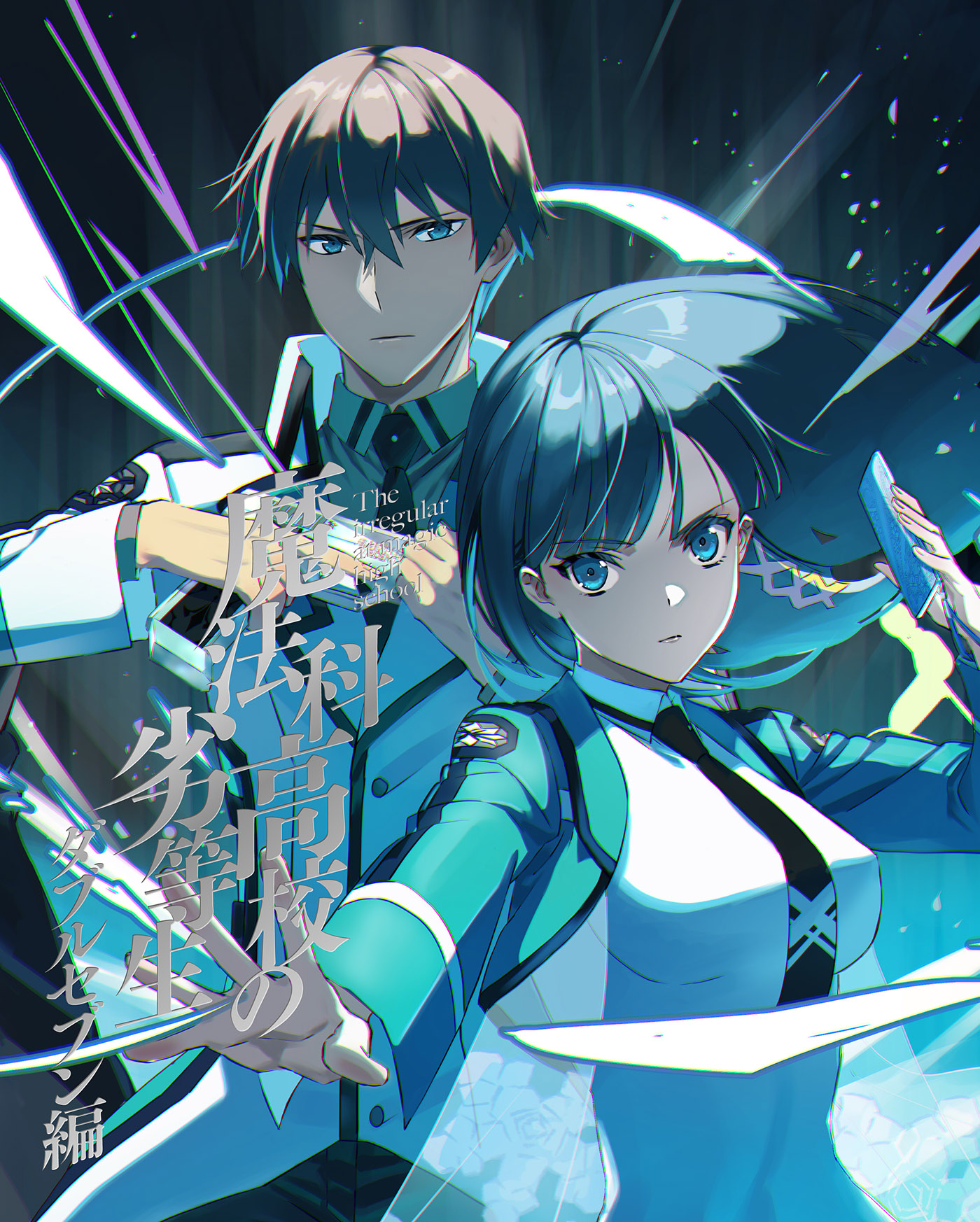
Blu-ray & DVD “The Irregular at Magic High School Double Seven Edition 1”
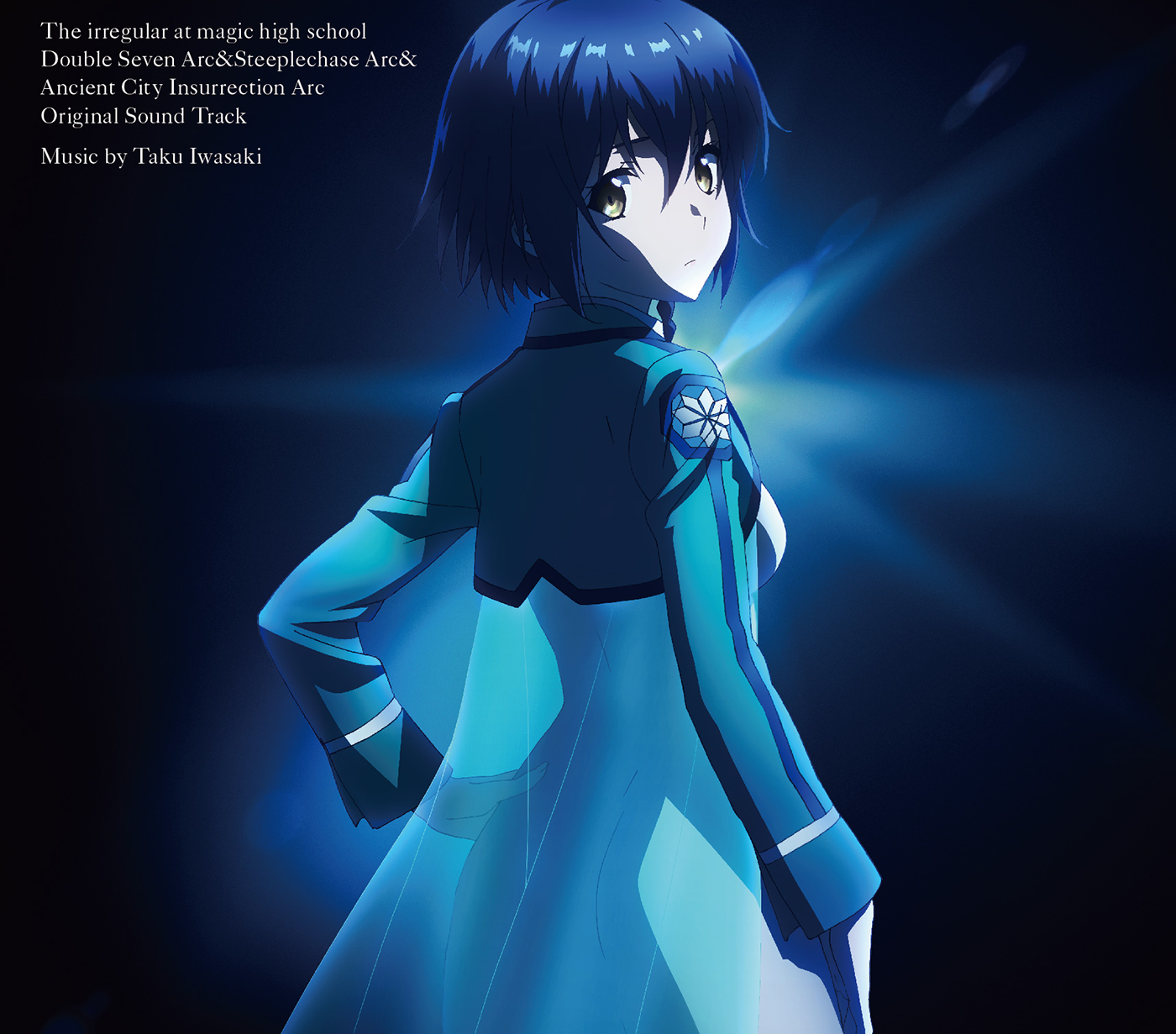
“The Irregular at Magic High School Double Seven Arc & Steeplechase Arc & Ancient Capital Civil War Arc Original Soundtrack”

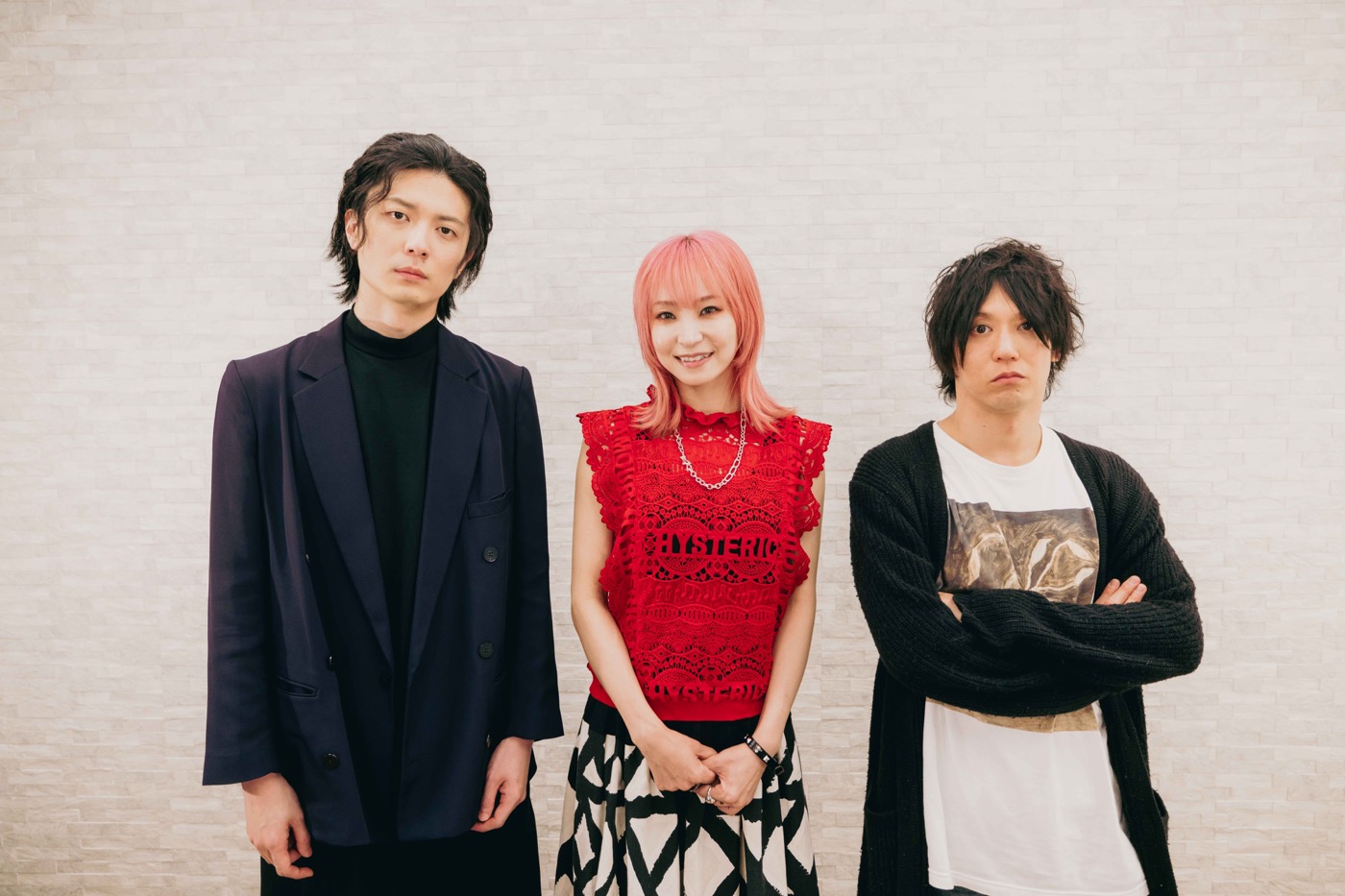
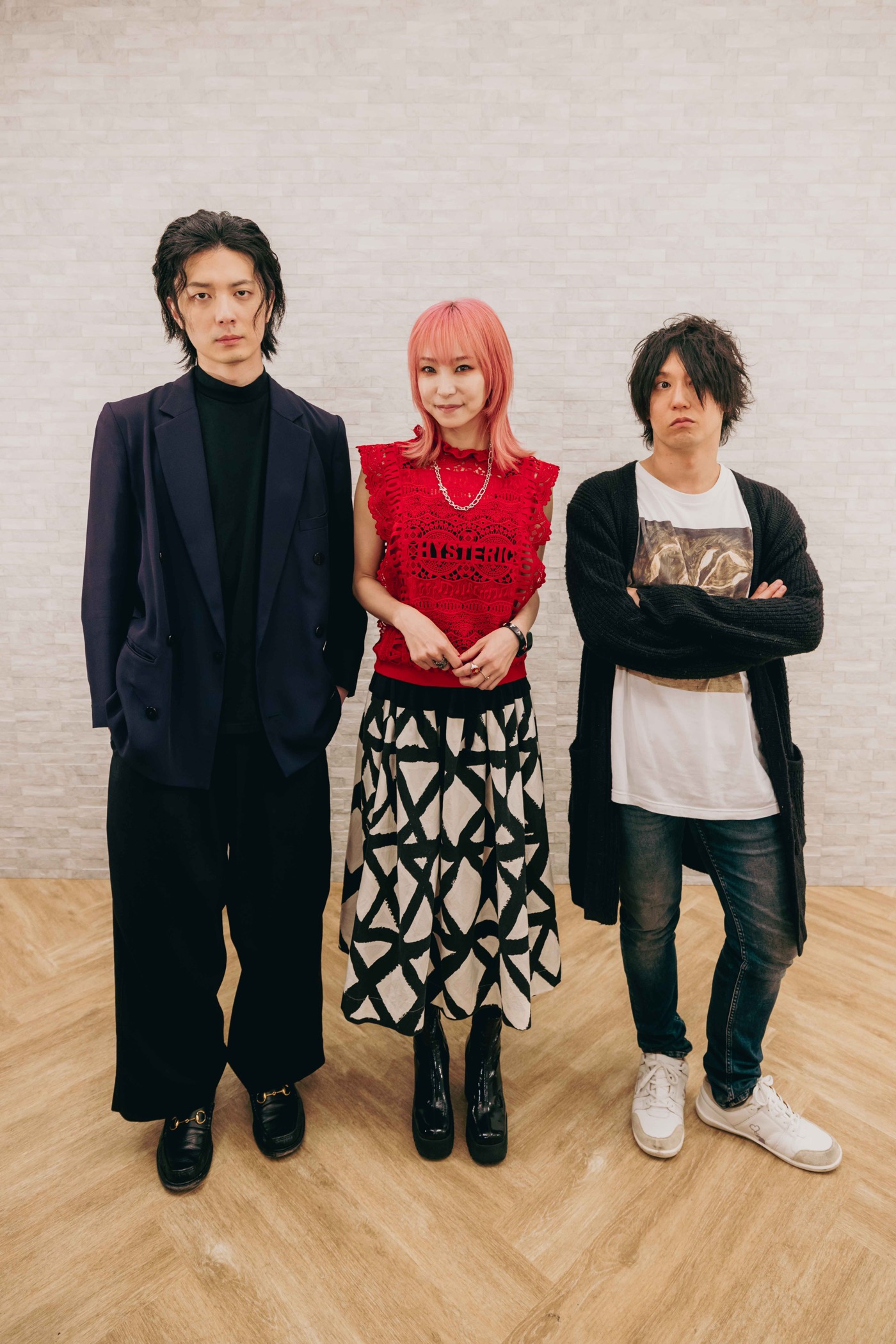
![Shingo Katori asks Ryu -chan, exclusively model for “KOGYARU”, “Ryu, that girl? Boy who was with you!” What is the answer?[Nanana]](https://tokytunes.com/wp-content/uploads/2025/02/1738497766_Shingo-Katori-asks-Ryu-chan-exclusively-model-for-KOGYARU-Ryu-768x432.jpg)
